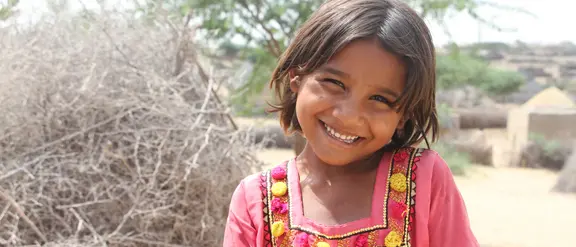Pakistan: Thanks to the new fountain, more children come to school
Starting situation
The province of Sindh is located in the southeast of Pakistan - large parts are desert or half desert, people are poor. The rainfall has been decreasing for years and to get water, the families have to travel longer and longer paths. The children often do this work. There is no time for school.
The Terre des Hommes partner organization
The organization "Association for Water, Applied Education & Renewable Energy" (Aware) was founded in 2005 and is particularly committed to disadvantaged population groups in remote regions of Pakistan.
Measures and effects
With the support of Terre des Hommes and the BMZ (German Federal Ministry for Economic Cooperation and Development), AWARE is installing solar-powered water pumps. Fifteen villages in the desert region now have access to clean drinking water for the first time. This is leading to far-reaching changes: Children who were often responsible for fetching water now have time to go to school.
AWARE and Terre des Hommes have renovated the schools and also offer attractive leisure activities for the boys and girls: For example, they can meet in "children's clubs" where they receive homework help and discuss their problems with their peers.
The measures show success: the school enrollment rates in the region have increased significantly. And the functioning water supply also improves nutrition in the communities, because now vegetables can even be grown in the desert. The health of families has also improved with the water pumps. In order to further reduce the previously high mother-child mortality, women and midwives receive hygiene training.
Challenges and planning
A challenge for the project is that there is little work in the region. Many families have to earn their homes as migrant workers, others pull away completely. The Solarbrunnen now has the opportunity to run on site agriculture, which can be a great incentive for many families and to send their children to school.
